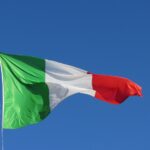
The government increased protection efforts. The government identified 576 new victims in 2022, an increase compared with 493 in 2021 and 536 in 2020. Of the victims identified, 313 were sex trafficking victims and 232 were labor trafficking victims, a number which included 214 victims of forced labor, seven victims of forced criminality, two victims of domestic servitude, and nine victims of forced begging. Thirty-one of the 576 victims were exploited in trafficking abroad or in transit to Italy. For the first time, the government identified two Italian national victims of enslavement. The government also identified 207 persons at migration centers whom the government believed were likely to become trafficking victims but had not yet been exploited in Italy. The government focused its victim identification efforts on migrants and asylum-seekers arriving at designated points of entry and reception centers; undocumented migrants and asylum-seekers continued to make up the majority of identified trafficking victims, as migrant arrivals surged. NGOs and international organizations reported gaps in authorities’ proactive victim identification efforts persisted during the reporting period. By focusing efforts on individuals newly arrived in the country, potential victims who did not encounter their traffickers until after their arrival may have gone unidentified. The government identified very few children (less than 2 percent). In 2022, authorities and NGOs reported the increased use of private residences and online platforms continued to hinder their identification of sex trafficking victims.
The government cooperated with NGOs and international organizations to provide shelter and services to victims. In 2022, the government provided victim assistance through 21 projects submitted by regional and local authorities and nine submitted by NGOs from across Italy and allocated €27.2 million ($29.06 million) to these projects over a period of 17 months; in 2021 the government allotted €24 million ($25.64 million) for 12 regional/local and nine NGO projects over a period of 15 months. NGOs reported high standards of assistance programs across regions, with occasional localized differences in quality. In 2022, the city of Rome allocated €1.3 million ($1.39 million) to an NGO partnership for the creation of four shelters and one-stop victim services centers. NGOs reported the Department of Equal Opportunity (DEO), which coordinated protection efforts, was not sufficiently funded or staffed to consistently monitor assistance programs nationally. In 2022, the DEO reported government-funded NGOs assisted 1,325 trafficking victims, including 815 sex trafficking victims, 472 labor trafficking victims (including 427 forced labor victims, 19 forced criminality victims, 17 forced begging victims, and nine domestic servitude victims), and 38 victims exploited in trafficking abroad or in transit to Italy. This was similar to the 1,369 trafficking victims assisted in 2021, 1,456 assisted in 2020, and assisted 1,516 in 2019. The number of labor trafficking victims identified and assisted has increased in recent years. The government also assisted 10 witnesses and 433 persons at migration centers whom the government believed were likely to become trafficking victims but had not yet been exploited in Italy. Statistics pertaining to the number of victims assisted by the government included victims assisted for the first time in 2022 as well as ongoing assistance to victims identified in prior years. The government had a formal and comprehensive NRM that addressed all forms of trafficking, which was codified in the 2022-2024 NAP, although NGOs noted it was implemented unevenly throughout Italy during the reporting period. Both NGOs and the government could identify trafficking victims. NGOs recognized inconsistencies in the efficiency and effectiveness of the referral process between regions and found quality standards were lower in the south. The government also had an NRM specifically for labor trafficking and exploitation in agriculture, which included minimum standards, standard procedures, and available assistance for victims. Insufficient availability of interpretation services for lesser-known African dialects, with victims coming from as many as 15 different language groups, remained a significant challenge. Trustworthy interpreters were also difficult to secure, as reportedly many interpreters came from the same communities as accused traffickers.
While the government had a victim identification and referral mechanism for some forms of child trafficking and children within the asylum system, it remained without a separate national mechanism that included all forms of child trafficking. In its 2019 report, GRETA recommended establishing a separate NRM specifically for the specialized needs of children. One NGO estimated in 2020 that 13 percent of trafficking victims in Italy were children. NGOs welcomed increased scrutiny by authorities of age-claims, and authorities more often sent victims into child protection if unable to confirm adulthood. In September 2022, the government signed an MOU with an NGO to develop assistance programs for children, including unaccompanied children and potential trafficking victims, and to support the identification of potential victims. Foreign child victims automatically received a residence permit until age 18 and accommodations in a general children’s center or a designated center for trafficking victims who were also asylum-seekers. Children received counseling and were enrolled in public schools with the support of mentors.
The government reported observing standard UNHCR procedures to screen for trafficking victims among the approximately 105,131 asylum-seekers, unaccompanied children, and undocumented migrants that arrived by sea in 2022. Civil society coordinated with law enforcement and immigration officials at both the arrival points and the longer-term reception centers, and an international organization reported providing information on potential trafficking victims to local officials responsible for assigning migrants to migration centers and trafficking victims to shelters. However, NGOs in 2020 and 2021 asserted authorities did not properly identify many trafficking victims upon arrival, potentially leaving some victims unidentified within the system and classified them instead as asylum-seekers or undocumented migrants and therefore subject to deportation. A 2020 report further stressed the need for more time to screen refugees and migrants at arrival ports to ascertain victim status more accurately, but they acknowledged conditions were not conducive to a stay at the ports beyond one or two days. During the reporting period, local committees continued to utilize national guidelines for asylum-seekers to adjudicate asylum applications to identify trafficking victims among applicants; however, inconsistencies in implementation persisted.
The law allowed for an initial three to six months of government assistance to all trafficking victims. After initial assistance, foreign victims were eligible to obtain temporary residency and work permits and had a path to permanent residency; additionally, foreign victims were eligible for six months of shelter benefits, renewable for an additional six months only if the victim obtained a job or enrolled in a training program. However, in some cases, the government housed victims and potential victims with undocumented migrants, and such housing lacked adequate security against traffickers seeking to recruit victims or remove those already under their control. The government did not report how many temporary residence permits it issued in 2022, compared with issuing some kind of immigration permission to 493 potential trafficking victims in 2021, 108 temporary residence permits in 2020, and 155 permits in 2019.
The government reported that foreign and Italian nationals were entitled to the same benefits and that the law entitled all crime victims to free legal assistance. Italian criminal law lacked a provision specifically prohibiting punishment of trafficking victims for unlawful acts committed as a direct result of being trafficked, but rather prosecutors and judges had discretion on whether to prosecute a trafficking victim based on the principle of the “state of necessity.” Current law required proof that the unlawful act was committed as a result of being trafficked, usually via the conviction of the trafficker, which left victims and potential victims at risk of prosecution and conviction when a court did not first convict the perpetrators. Although Italy’s highest penal court upheld the principle of non-punishment of trafficking victims in two separate rulings in prior reporting periods, in some cases courts convicted unidentified trafficking victims of crimes because they had not yet been identified as trafficking victims. Furthermore, defense attorneys sometimes requested fast-track criminal proceedings that would result in convictions with reduced penalties; victims who may have eventually been identified as such were convicted before this could happen. GRETA and other experts urged the government to adopt a legal provision explicitly preventing inappropriate penalization of victims for unlawful acts committed solely as a result of being trafficked. The government did not require victims to cooperate with law enforcement to obtain assistance like shelter, medical care, or a residence permit. The government reported it often had difficulty prosecuting trafficking cases because victims were unwilling to cooperate with law enforcement; NGOs urged the government to adopt a victim-centered approach.
The government continued to lack comprehensive statistics on restitution and damages awarded to victims and did not require prosecutors to systematically request restitution during criminal trials. The government could offer a single payment of €1,500 ($1,600) to victims for compensation, although GRETA and NGOs noted the process to claim it was overly complex, the amount insufficient, and very few victims ever received compensation. The government did not report granting compensation to any victims during the reporting period. GRETA further recommended the government increase the use of existing legal remedies to provide restitution to victims and more proactively seize assets and pursue forfeiture against perpetrators. The government did not award restitution from criminal cases or damages from civil suits to any trafficking victims.
from 2023 Trafficking in Persons Report – U.S. Department of State
2023 Trafficking in Persons Report – United States Department of State

